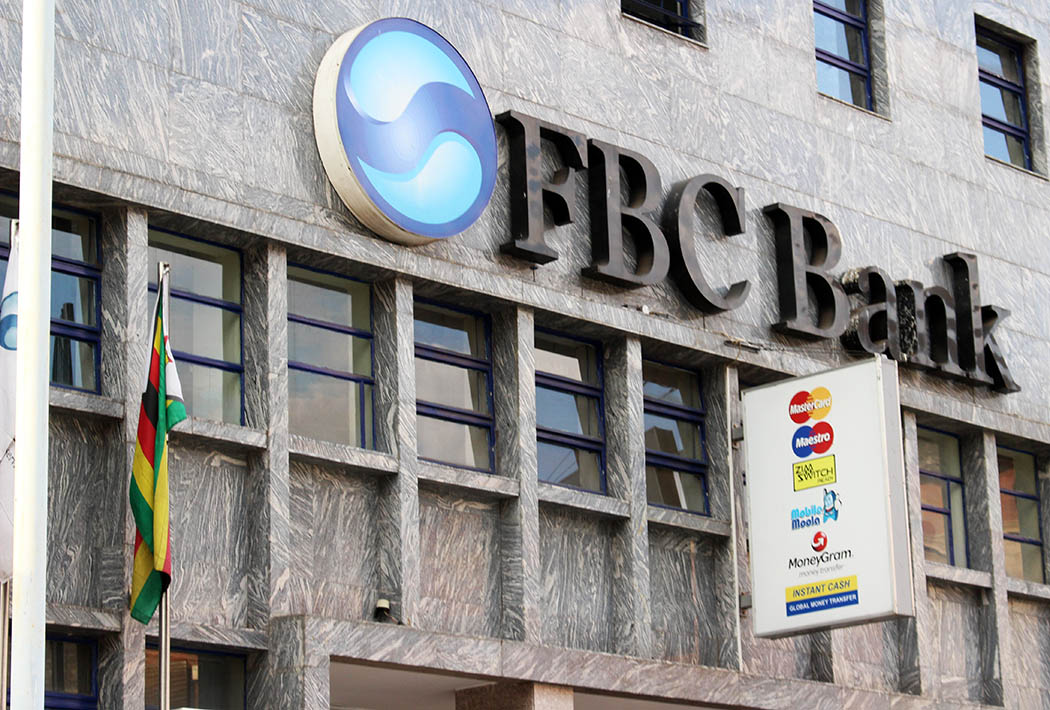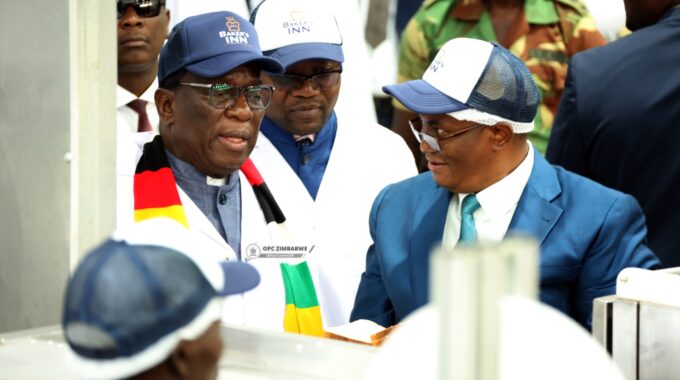US$1m Hwange tourism project nears completion
THE US$1 million cultural village being constructed in Lubangwe, Hwange district in Matabeleland North with the aim of promoting rural tourism is almost complete with most structures already in place.
A Chronicle news crew visited the facility in Lanyula Village under Chief Shana on Saturday and observed that the facility has a campsite where three of the five ground chalets are complete with the other two being worked on while two other storey executive rooms are being constructed.
On the other side is the already completed Lanyula Cultural Village, which has rondavel huts, each depicting a specific Zimbabwean ethnic group.
Village heads and community members at Lanyula Cultural Village
The campsite resembles the natural game sanctuary with various kinds of wild animals made from recycled material, and maintained natural vegetation with several exotic trees having been planted.
Near the gate is a depiction of the Victoria Falls and Great Zimbabwe monuments, a Ndebele iqhugwana and Victoria Falls bridge.
The site already has running water from a solar-powered borehole, which is also supplying the surrounding village. The facility targets all clients, especially overlanders, hunters, and workshops.
The Great Zimbabwe
A Zimbabwean businessman based in the diaspora, Mr Takudzwa Mutepfa is the brains behind the project and has since injected US$500 000 in the first phase, which he said should be complete by August when the facility could open for its first clients.
He started constructing Lanyula Cultural Village six years ago using personal resources from his savings.
His plan hinges on the country’s vision to be an international tourist destination of choice, leveraging on the sustainable use of its natural heritage, comprising culture and wildlife.
The strategy is also informed by the Government’s Vision 2030 whose quest is to grow the economy to become an upper middle-income economy characterised by increased investment, decent jobs, and communities free from poverty and corruption.
The high growth target of this strategy, which seeks to achieve a US$5 billion tourism economy by year 2025 is ambitious yet achievable.
The cultural village will be a centre for showcasing traditional and historic structures for all tribes and languages under one roof.
In August 2020, President Mnangagwa launched the National Tourism Recovery and Growth Strategy to reboot the tourism sector following the devastating impact of the Covid-19 pandemic on global economies.
Victoria Falls
Mr Mutepfa said the idea is to promote rural industrialisation and is working in partnership with the community, which has dug a small dam that will be used as a storage facility for the centre and animals.
Mr Mutepfa said plans are underway to apply for a permit to keep small game at the facility for tourism purposes and to raise awareness against wildlife poaching.
Mr Mutepfa
“The idea is to create small micro-economies in rural areas so that as a country we stop cross-border migration, as well as rural-to-urban migration,” he said.
“We want also to keep youth and communities busy and reduce drug and substance abuse as a result of redundancy. By August we should have completed a majority of work and probably be up and running in the accommodation side,” said Mr Mutepfa.
Money – Image taken from Pixabay
He said Zimbabwe can prosper and achieve its economic transformation goals if the multitudes that are in the diaspora invest back home.
“Government is appealing to those in diaspora to come back and invest. I had been thinking about this for a long time that we cannot be running away from our rural areas because there is no development,” said Mr Mutepfa.
Lanyula Cultural Village
“We need to invest in our rural homes, yes there are some negative forces that may disturb but we should take the lead and create employment.
“We are better suited than foreign direct investment to invest in our country because our focus is people and all money stays locally. Home-grown solutions are better than foreign investment as communities get not only jobs but water and skills, as well as pride in being locals.”
Covid-19
Mr Mutepfa challenged Zimbabweans based in the diaspora to bring skills back home saying local resources from within the village are being used in the construction, which is benefiting locals in a big way.
“We have citizens everywhere across the globe who are learning some skills and if we plough them back home we can be better than any country in the world,” he said.
Chief Shana
“Once we empower locals they won’t poach firewood and animals or abuse drugs. Lubangwe is on the edge of Hwange National Park, making the cultural village an ideal place for game viewing and game drives.”
The village is set to become a melting pot for all cultures, tribes, and languages in Zimbabwe. The name of the village “Lanyula” means “sunset” in Nambya. Villagers are excited about the project, which they said will transform lives and contribute to local economy.
Hwange National Park
“We are grateful for what Mutepfa has done. He is the first person to bring development here and our children now have jobs. We wish he gets supported to continue with this project,” said Lubangwe Farm 55 Village 2 village head, Mr Joseph Munsaka.
Mrs Nesi Mpala of Lanyula Village 2 said the centre is already helping the community with access to clean water as villagers are getting piped water from there.
“When they started they installed solar panels and installed piped water from where we are fetching now because before that we would drink dirty water from the river, which would dry during the hot season,” she said.-chronicle.cl.zw









